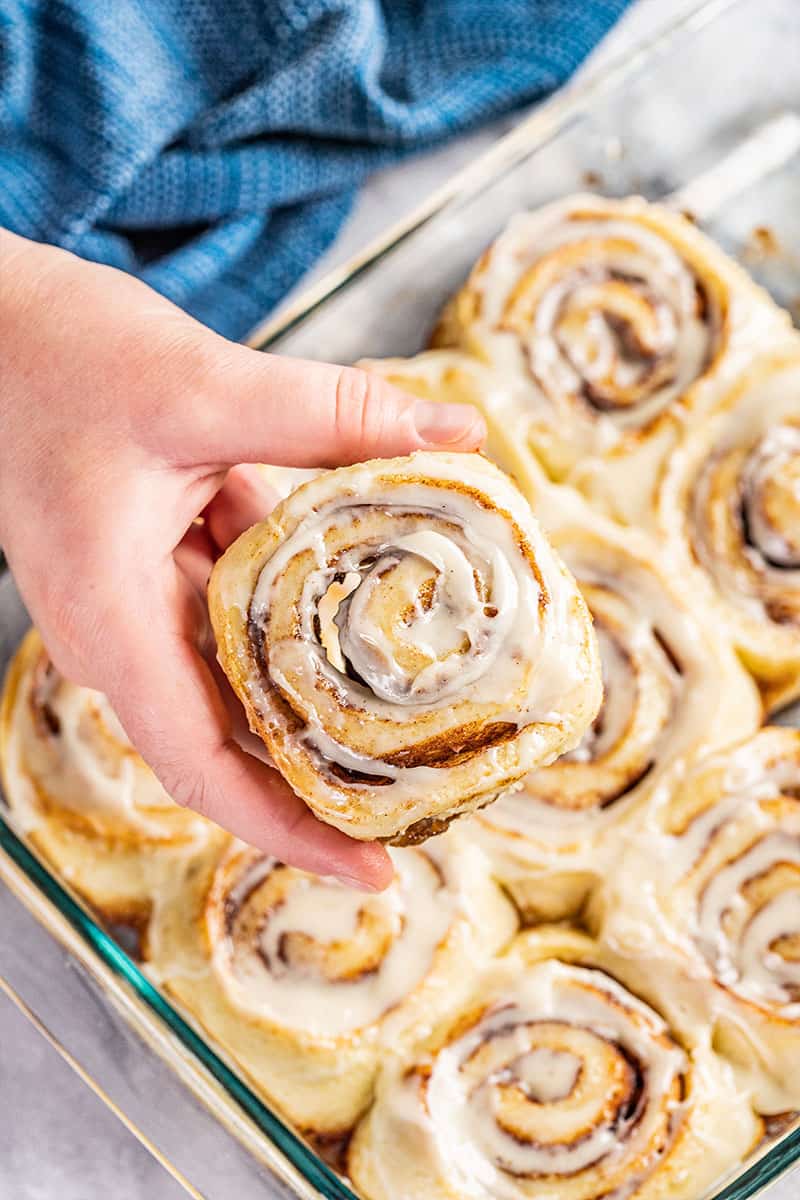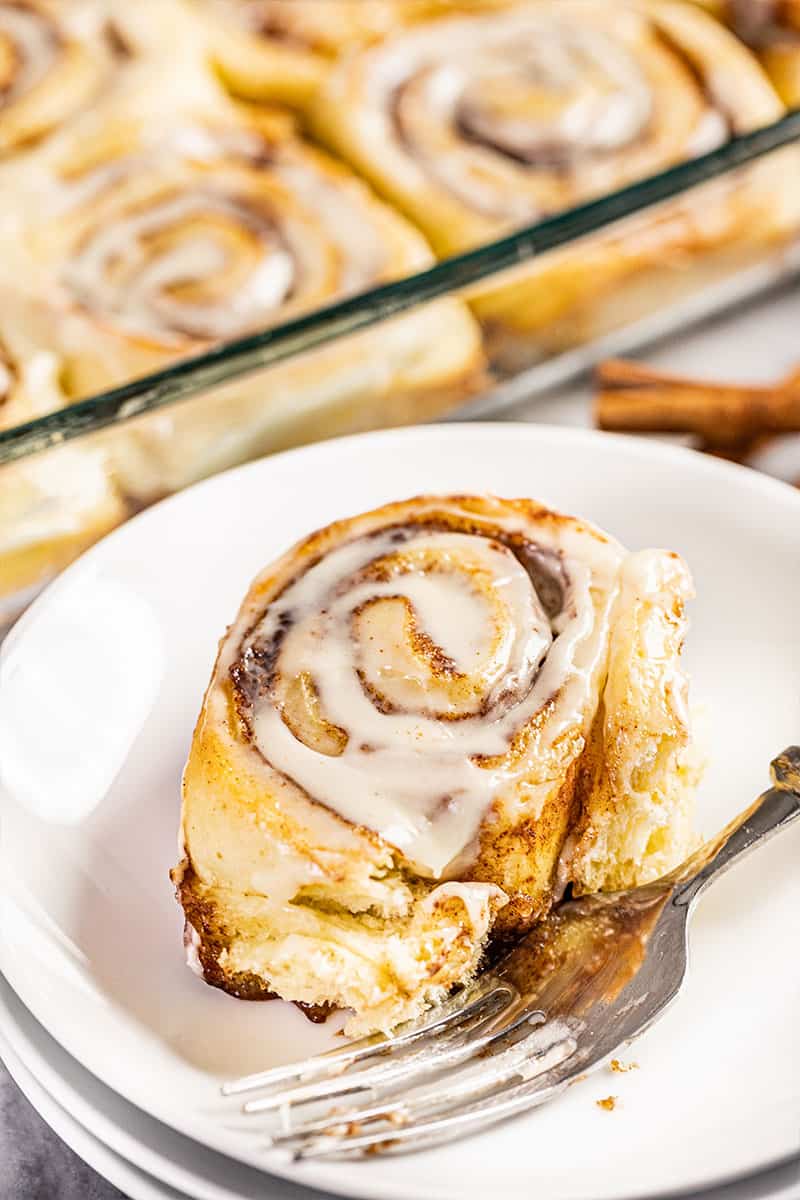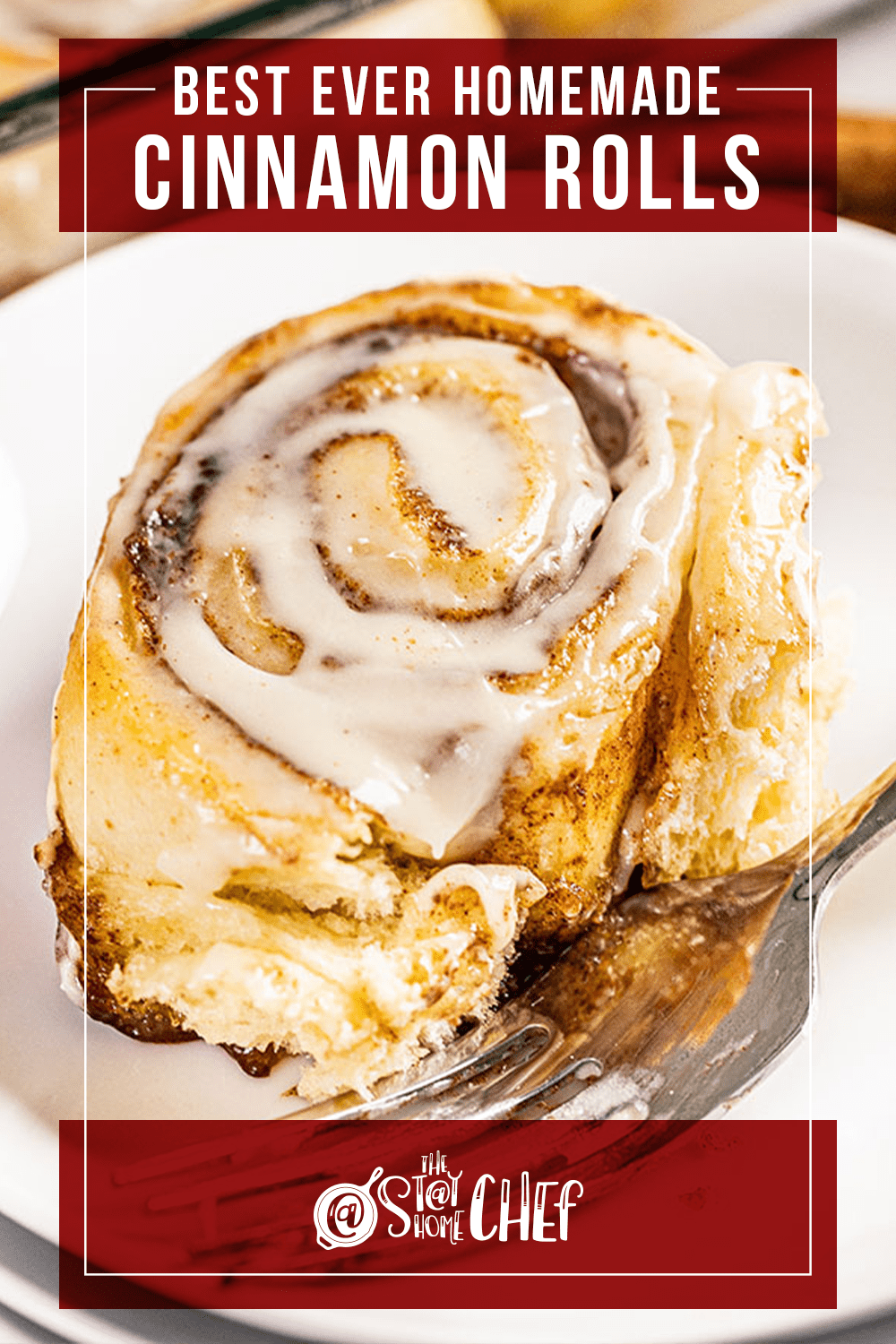Gluten Free:
We have not personally tested any variations of gluten free flours. It has been reported in comments that the gluten-free flour mix, Cup for Cup, works in this recipe; we cannot personally vouch for it.
Can I make The Best Homemade Cinnamon Rolls Ever without a stand mixer?
You can knead it by hand! Start out by stirring with a spoon until you can’t do it anymore, and then knead it by hand. Just keep on kneading until all the flour is incorporated and/or the dough is soft to the touch and only slightly sticky. It’s a bit of a workout, but it’s worth it!
Sodium:
If you need to reduce sodium for dietary reasons, don’t fret. Reducing salt will not affect the rising. The only thing it will impact is flavor.
Milk Temperature:
The milk should be warm to the touch, between 100 and 110 degrees. You can use 1% up to whole milk. We never recommend using skim milk for anything.
Measuring the flour:
The flour you buy at the store these days is generally pre-sifted. There is no need to sift your flour. We prefer the scoop and sweep method as it is ultra-convenient. Simply use your measuring cup to scoop out the flour and level off the top. Weighing your flour using a kitchen scale is the only way to ensure complete accuracy. Even then, bread making is both fickle and forgiving, and the actual amount of flour you add can change just due to the humidity in the air. When making this roll recipe, it is best to go by the touch and feel of the dough. 1 cup of flour is approximately 125 grams.
How soft should my butter be?
The butter should be at room temperature and smoosh easily to the touch. If you soften the butter in a microwave, be sure to work in small time increments so you don’t get any melted pools of butter.
Salted or Unsalted Butter:
I have tested the recipe with both salted and unsalted butter without a huge or notable difference. Either will work.
Can I use bread flour?
We have used both all-purpose flour and bread flour without a huge or notable difference. We do not have a preference, so just use whichever is convenient.
What should the dough feel like?
The dough should be slightly sticky, but still very soft and pliable. It should just barely not be sticking to the bowl. If you add too much flour and the dough stiffens, your rolls will also get a little stiff. You can definitely feel a soft roll just by touching the dough.
Overnight Instructions:
After you’ve rolled and cut your cinnamon rolls and placed them into your lightly greased baking pan, cover with plastic wrap and place in your refrigerator. The next day, remove them from the fridge and allow them to come to room temperature (about 45 minutes to an hour depending on the temperature of your house) before baking.
Freezer Instructions:
Roll and cut your cinnamon rolls and place several inches apart on a baking sheet to freeze rolls individually. Once frozen, transfer to a resealable plastic freezer bag. When ready to bake, place in a lightly greased baking dish and allow to come to room temperature before baking.
Storage Instructions:
Store your cinnamon rolls in an airtight container for up to 5 days. They will certainly start to dry out the longer they’ve been left out. If you like this recipe you may be interested in some of our other delicious sweet roll recipes:
Pumpkin Cinnamon RollsOrange RollsMaple Pecan Sticky BunBaklava Cinnamon RollsCoconut Rolls
Δ Δ






![]()